Oman Passenger Jet Grounded After Hitting Debris On Runway In Iran
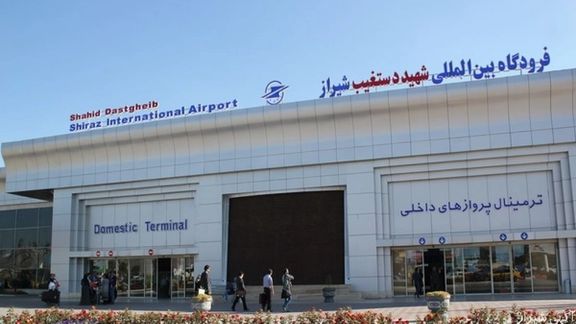
An Oman airliner has been grounded after hitting debris on the runway in Shiraz – the latest evidence of the poor state of transport in Iran.

An Oman airliner has been grounded after hitting debris on the runway in Shiraz – the latest evidence of the poor state of transport in Iran.
Oman Air said Tuesday that its flight WY2435 from Shiraz to Muscat was grounded on Monday after the aircraft was damaged.
The Muscat-based airline did not specify what debris struck the Boeing 737 during the landing at Shiraz International Airport.
“Our engineering team is undertaking the necessary measures to safely bring the aircraft back to Muscat,” the airline said in an online statement. Passengers on the flight were given accommodation in Shiraz, 680 kilometers southeast of Tehran.
Another plane was sent to take them back to Muscat.
There was no immediate acknowledgement of the incident by the Iranian officials.
There have been a number of similar incidents over the past few years, as Iran’s air sector struggles with the effects of US sanctions over the Islamic Republic’s nuclear program.
Norwegian Air Shuttle landed a brand-new Boeing 737 Max in Shiraz in December 2018 after one of its engines failed at altitude while flying from Dubai. The aircraft remained on the ground for several months before finally departing.
Shiraz airport serves both commercial and military flights, as do many other airports in the Middle East.
Oman has often served as a mediator for the West with Iran, against a backdrop of Tehran's tense relations with its Arab neighbors and the US.

A lawmaker who had recently revealed bribery involving a former minister and seventy lawmakers in Iran has been indicted for “making a claim without evidence”.
Mizan, the official news agency of the country’s judiciary said Tuesday that Ahmad Alirezabeigi, representing the northwestern city of Tabriz in the parliament, was indicted based on a report by the parliament’s board supervising lawmakers’ conduct.
The board ruled that the whistleblower had not offered any evidence for his claim of bribery, although after his revelation evidence emerged that more than 70 lawmakers had received SUVs from carmakers accountable to the minister of industry.
In an interview with Etemad newspaper on April 30, Alirezabeigi described his meeting with the board as “a political trial”.
He insisted that his claim was proven by the fact that an official of the parliament’s human resources department had signed the letter to the company that made the offer of cars below market value with installments and without any interest. The letter contained a list of lawmakers who signed up to receive the cars.
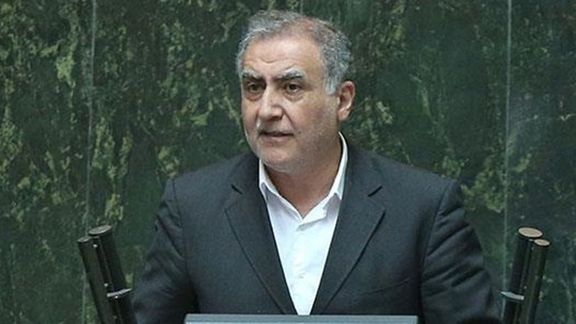
Alirezabeigi and another lawmaker, Hossein Jalali, also claim that Speaker Mohammad-Bagher Ghalibaf was aware of the offer of cheap cars for lawmakers.
According to Mizan, Alirezabeigi has made his final defense and a court order (writ of security) has been issued to ensure he would return to the court when summoned.
Alirezabeigi revealed in late April that over seventy SUVs were offered to the lawmakers at a lower price by the ministry of industry ahead of lawmakers’ discussion of a motion in December last year to impeach former minister of industry, Reza Fatemi-Amin. The minister was accused by at least 40 members of parliament of “inadequate performance” including failure to control rising prices for domestically produced vehicles, their low quality, preventing competitive imports, and corruption in the industry.
The first impeachment drive failed as many lawmakers stopped supporting the motion, allegedly after receiving the vehicles. Eventually, parliament sacked Fatemi-Amin on April 30th, two days after Alirezabeigi’s revelation, despite the government and Fatemi-Amin’s denials of any wrongdoing.
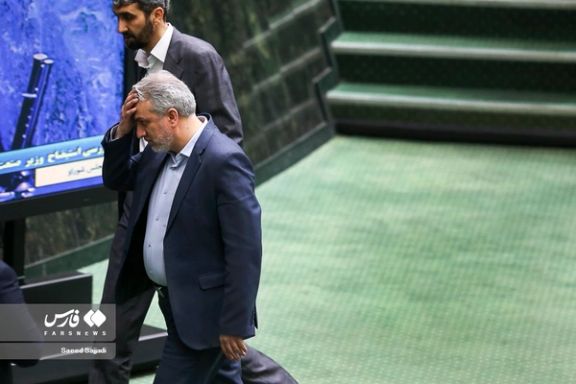
More than 200 members of parliament have sent text messages to the public or told the media that they were never involved in the scheme and had not benefited from it. The media have published a list of others who have not denied receiving the SUVs. These include both Ghalibaf supporters and hardliner Paydari Front lawmakers.
Importing cars has been mostly banned by the government in recent years and domestic production is limited, making personal vehicles a sought-after commodity. Obtaining domestically produced vehicles is hard and there are long waiting lists that boosts their price.
Alirezabeigi who has close ties to the former populist President Mahmoud Ahmadinejad claims he only meant to combat corruption and had no hidden agenda when he disclosed the bribery by automakers on behalf of the minister.
Khabar Online, a news website close to the former moderate-conservative speaker of parliament, Ali Larijani, wrote Saturday that the scandal has turned into an excuse for the two major groups of hardliners in the parliament -- supporters of Ghalibaf and Paydari Front lawmakers – to settle political accounts.
“I was not personally offered to receive a car, but I have seen the cars in the parliament. They were in the parliament’s parking lot and were given to lawmakers. The matter is quite clear,” Bigdeli told Asr-e Iran news website on April 27.
“Some people gain privileges on various excuses to compromise and undermine the supervisory duty of the parliament,” he said on April 30 while calling such bribery a “tradition in the parliament” to prevent impeachments.
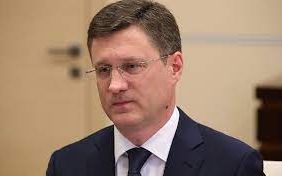
Russian Deputy Prime Minister Alexander Novak, in charge of energy diplomacy, arrived in Iran Tuesday and stressed the benefits of more cooperation in the oil and gas sectors, Moscow said.
Russia and Iran, both under Western sanctions, are forging closer ties in order to support their economies and to undermine Western sanctions which they both cast as unjustified.
Novak met Iranian Oil Minister Javad Owji and also visited a number of oil and gas equipment manufacturers and discussed prospects for working together in the fuel, energy and transport sectors, the Russian government said in a statement.
"The oil and gas industry is a backbone for the economies of our countries. Strengthening bilateral cooperation in this area will undoubtedly increase the economic sustainability of Russia and Iran," it quoted Novak as saying.
The two sides also discussed cooperation in the field of electrical and nuclear energy as well as renewable energy sources, the statement added, but gave no details.
Iran claimed last year that Russia was ready to invest $40 billion in Iran’s energy sector, but despite similar reports in the past Moscow’s involvement in Iran’s economy remains negligible, except its technical support for the Busher nuclear reactor.
Iran has been supplying kamikaze drones and possibly other weapons to Russia since mid-2022 that have been used against Ukraine. Western countries have deplored the Iranian arms transfers and imposed sanctions on individuals and entities involved.
Russia started fuel exports to Iran by rail this year for the first time after traditional buyers shunned trade with Moscow, industry sources and exports data revealed in April.
With reporting by Reuters

A secret underground drone base of Iran’s Revolutionary Guards (IRGC) has been uncovered by an Israeli security think tank.
The location in the southwest of Iran was revealed Monday by Alma center, a non-profit research organization which focuses on the security challenges on Israel's northern borders.
The UAV base is carved into the Zagros mountains near Shiraz, Fars province, according to a video released by Alma. The location is about 10km from Shiraz airbase, which also houses the air force's SU-24 jets of the 72nd tactical fighter squadron.
The base’s proximity to the strait of Hormuz in the Persian Gulf “threatens the entire Middle East at any given moment”, Alma warned.
Satellite footage provided by the center shows the drone base consists of a site for a “swarm” – a coordinated unit of multiple drones – and a command-and-control center.
The swarm base has at least five UAV launch silos as well as three access tunnels and a loading dock tunnel.
The UAVs that can be launched from the silos are Shahed, the same kamikaze attack drones the regime is supplying to Russia for its invasion of Ukraine.
The underground base is at least 3km long with an entrance near Shiraz industrial town, where parts are probably made or assembled.
The 2,000km range of Iran’s attack UAVs drones allowed it attack sites beyond Israel as far as Cairo, Alma claimed.
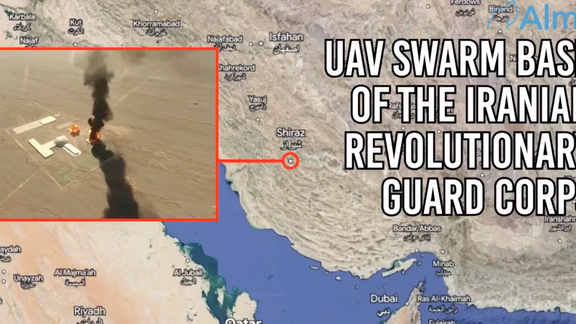
The Iranian authorities have released images of drone bases but never disclosed their locations.
Last year in March, Israeli media reported that an Israeli aerial attack destroyed hundreds of drones at an IRGC airbase in the Iranian province of Kermanshah. Six Israeli drones struck the base in Mahidasht region near the western city of Kermanshah in a covert operation. In response, Tehran pounded Iraq’s Kurdistan region with missiles for week, claiming the targets were bases used by Israel.
In April, Iran released footage of top brass visiting a large underground base housing a large number of drones. Earlier, in February, Iran revealed an underground air force base called
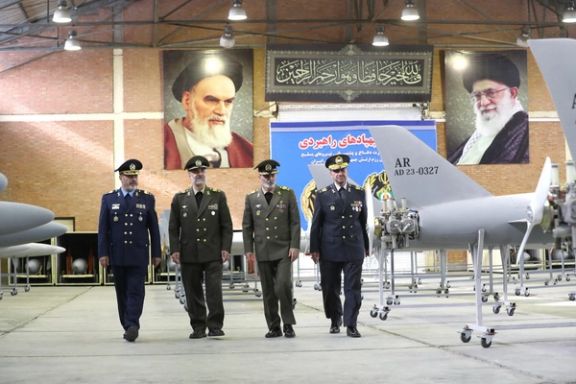
"Eagle 44", saying it is the first of its kind large enough to house fighter jets, with reports that the base is also capable of storing and operating drones. Iran’s lack of a viable modern air force due to long-running sanctions and arms embargoes leaves it mostly relying on missiles and drones.
There has been growing speculation recently over an Israeli air attack on Iran to contain its military program. The US and Israel held large-scale drills in January in possible preparation for such an attack.
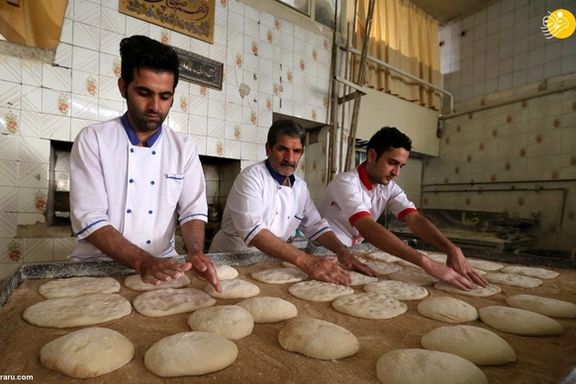
The flour allocation for some bakeries in Tehran has plunged by more than half, according to Iran’s Baker Union.
Revealing a shocking fall of 50-60% in some cases, Union Head Mohammad Soleimani told ILNA on Tuesday that “unfortunately, no government institution gives a clear response on the issue.”
He said bakers are greatly worried about the reduction of the flour allocation handed out every ten days.
Earlier, another person involved in the industry said: “While a baker's monthly quota should be 300 bags of flour, when he receives between 150 and 200 bags, he can never keep his shop open all the time.”
The report of a 50-60% reduction in the flour portion of Sangkak (a type of popular bread) bakeries in Tehran has caused concern among bakers and customers alike. The shortage of flour significantly pushes up the cost of baked goods, leading to a fall in sales.
The price of bread soared last year as the government decided to scrap the subsidy for imported wheat, flour and other essential items. The higher cost of flour is affecting a wide variety of breads, cakes and pastries including children's snacks, fast food such as hamburgers and sandwiches, and traditional noodles.
As higher prices lead to a fall in sales, the industry is faced with a drop in revenue, likely to lead to job losses in bakeries.
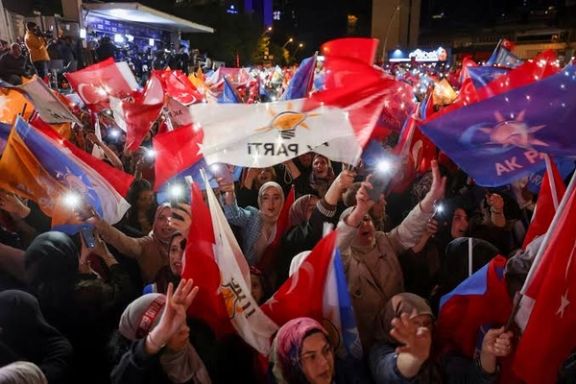
Amid popular demands for democracy and free elections, Iranians have exhibited an unusual degree of interest in Turkish elections for the first time.
Many Iranians didn't sleep all night after the polls closed in Turkey on May 14 and keenly followed election results on Iranian and international media, partly because of what an Iranian Twitter user noted as a similarity between the Turkish elections and the disputed Iranian presidential election in 2009.
International relations commentator Ehsan Movahedian wrote about the similarity: "The bipolar situation in Turkey is reminiscent of the 2009 election and its bitter consequences. Erdogan's provocative speeches reminds one of Iran's former President Mahmoud Ahmadinejad. The United States and Israel are lurking to take advantage of the situation and Iran is worried."
Just hours after polls closed in 2009, the regime announced that President Mahmoud Ahmadinejad had wone the election in the first round. Millions of voters and the losing candidate Mir-Hossein Mousavi disputed the hasty announcement and months of protests ensued. Thousands were arrested, dozens killed, and the mechanism of repression received a huge boost.
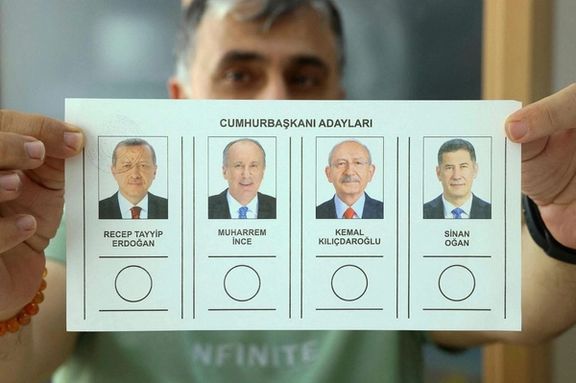
During the past few days, military forces in northeast Iran, which borders Kurdish populated eastern Turkey were put on a state of alert to control possible demonstrations following a likely victory by the opposition coalition leader Kamal Qelichdaruglu [Kilicdaroglu], social media reports said.
When the results were finally declared Monday morning, May 15, and incumbent President Recep Tayyip Erdogan and Qelicichdaruglu went through to take part in the run-off election in two weeks' time, Iranians began to ask themselves on social media where did all the interest in Turkish election come from.
The Iranian Foreign Ministry congratulated Erdogan and called the result "a victory for democracy." That was a very meaningful message from a country where a similar election in 2009 led to serious political strife with lasting deep wounds that seriously dented the legitimacy of the Islamic Republic.
The Twitter accounts of Iranian newspapers constantly updated the results throughout the night as they came in from Turkish media.
Iranian journalist Sadegh Alhosseini called the election a miracle, and called on Iranians to compare Erdogan's legacy with political dynamics in Iran and Saudi Arabia. Another Iranian journalist, Mehdi Rahbar, wrote: "This was the toughest challenge Erdogan faced during the past 20 years. And it is going tougher for him in the run-up election although Qelichdaroglu does not have a smooth path ahead of him either."
Yet another Iranian journalist, Mohammad Motlagh wrote Sunday night: "Iran is the biggest winner of Turkey's election. If Erdogan wins, that would be the beginning of the decline of NATO and probably conflicts between Turkey and Greece; and if Qelichdaroglu wins, it means harnessing the war in Caucasia [Armenia-Azerbaijan], reduction of tensions in Syria and Iraq and more interest in Russia to get closer to Iran."
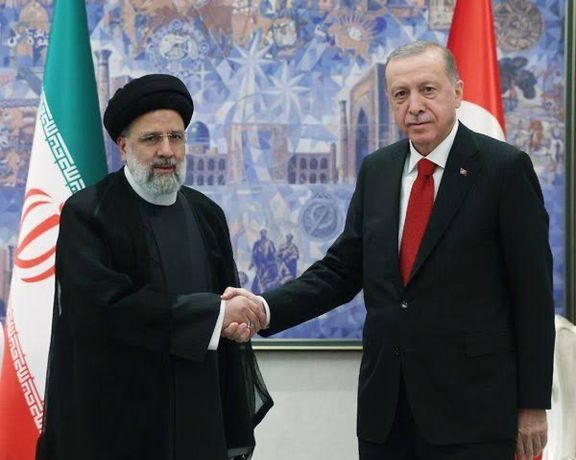
Iranian academic Fatemeh Shams wrote: "Erdogan's defeat makes me happy as Iran's defeat will do. Do not underestimate Erdogan and his Mafia's corruption and radicalism. If the opposition wins the election in Turkey many dynamics will change in the region."
Iranians saw the Turkish vote as democracy in action. As Iranian journalist Amir Hossein Mossala Pointed out, "No matter which candidate wins the election, the people of Turkey are its winners. They do not have leaders with absolute powers for life. There is no engineered election and arbitrary vetting of candidates in Turkey."
As an Iranian social media user observed, "Both sides have claimed victory, but [unlike Iran in 2009] no one attacked Qelichdaroglu's campaign or arrested its staff. SMS service has not been cut off, observers have not been expelled from polling stations, and Erdogan's supporters did not take to the streets with clubs in their hands. Turkey did not welcome darkness."